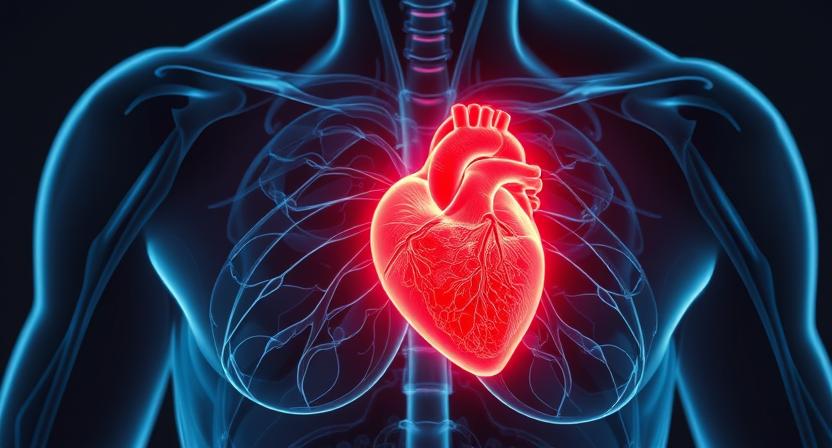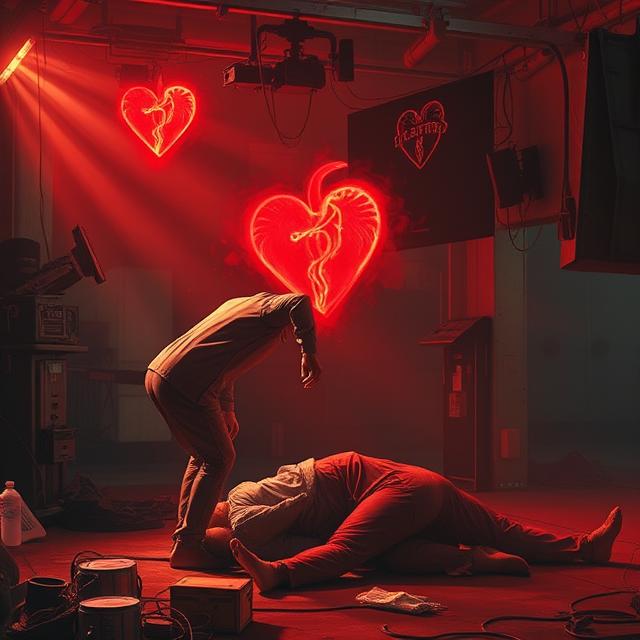Cardiac arrest is a sudden, life-threatening condition where the heart stops beating effectively. Unlike a heart attack — which is a circulation problem — cardiac arrest is caused by an electrical disturbance in the heart that leads to an abrupt loss of heart function, breathing, and consciousness.
When the heart’s pumping action is disrupted, blood stops flowing to the brain, lungs, and other organs. If not treated immediately, cardiac arrest can result in death within minutes.
Cardiac Arrest vs. Heart Attack: Understanding the Difference
Although the terms are often used interchangeably, cardiac arrest and heart attack are not the same.
- Heart Attack (Myocardial Infarction) occurs when blood flow to part of the heart is blocked.
- Cardiac Arrest occurs when the heart’s electrical system malfunctions, leading to sudden heart stoppage.
Note: A heart attack can sometimes trigger a cardiac arrest.
Symptoms of Cardiac Arrest
Cardiac arrest often strikes suddenly, with little or no warning. The most common signs include:
Sudden Symptoms:
- Collapse
- No pulse
- No breathing
- Loss of consciousness
Possible Warning Signs Before Cardiac Arrest:
- Chest discomfort
- Shortness of breath
- Palpitations (irregular heartbeats)
- Weakness or dizziness
- Fainting or near-fainting
These symptoms may occur minutes to hours before a cardiac arrest. Listening to your body and seeking prompt medical care is critical.
What Causes Cardiac Arrest?
The most common cause is ventricular fibrillation, a type of abnormal heart rhythm. Other causes include:
- Coronary artery disease
- Heart attack
- Cardiomyopathy (enlarged heart)
- Congenital heart disease
- Severe electrolyte imbalances
- Drug abuse
- Trauma
- Electrical shock
Real-Life Example:
Shefali Jariwala Death: “Anti-Ageing Medicines Could Be A Major Reason For Cardiac Arrest,” reported a source. Some anti-ageing treatments, especially when taken improperly, may affect blood pressure and cardiac rhythm, raising the risk of cardiac complications.
Emergency Treatment for Cardiac Arrest
Cardiac arrest is a medical emergency requiring immediate action. Survival chances decrease by 7–10% for every minute that passes without treatment.
What to Do:
- Call emergency services immediately.
- Begin CPR (Cardiopulmonary Resuscitation) – push hard and fast in the center of the chest.
- Use an AED (Automated External Defibrillator) if available – this device can restore normal heart rhythm.
These steps are part of the “Chain of Survival”, which includes:
- Early recognition
- Early CPR
- Early defibrillation
- Advanced life support
- Post-resuscitation care
Hospital Treatments and Recovery
Once a patient is revived and taken to the hospital, treatment focuses on stabilizing the heart and preventing recurrence.
Hospital Interventions:
- Defibrillation: Electrical shock to reset heart rhythm
- Medications: Anti-arrhythmics, beta-blockers
- Coronary angiography: To check for blocked arteries
- ICD (Implantable Cardioverter Defibrillator): To monitor and correct future arrhythmias
- Therapeutic hypothermia: Cooling the body to protect the brain
Recovery:
Recovery varies based on how quickly treatment was administered and the underlying cause. Some patients may experience memory loss, speech difficulties, or emotional challenges.
Specialists Who Treat Cardiac Arrest
Treatment and follow-up care for cardiac arrest involve a team of medical professionals:
- Emergency Medicine Doctors – provide immediate life-saving interventions
- Cardiologists – assess and treat underlying heart conditions
- Electrophysiologists – specialize in heart rhythm disorders
- Neurologists – assess brain function after cardiac arrest
- Rehabilitation Specialists – guide recovery and return to daily life
- Cardiac Surgeons – may intervene in structural heart issues
20 Frequently Asked Questions (FAQs)
1. Is cardiac arrest the same as a heart attack?
No, a heart attack is caused by blocked blood flow, while cardiac arrest is due to electrical failure.
2. What is the survival rate of cardiac arrest?
Out-of-hospital cardiac arrest survival is around 10%, but quick CPR and defibrillation can significantly improve outcomes.
3. What should I do if someone collapses from cardiac arrest?
Call emergency services, start CPR, and use an AED if available.
4. Can cardiac arrest happen without warning?
Yes, it often occurs suddenly, though some people may experience warning signs.
5. Is cardiac arrest reversible?
Yes, if treated immediately with CPR and defibrillation.
6. Can a heart attack lead to cardiac arrest?
Yes, heart attacks are a leading trigger of cardiac arrest.
7. Are there long-term effects after surviving cardiac arrest?
Some survivors may have cognitive, neurological, or emotional issues.
8. What are AEDs, and how do they work?
Automated External Defibrillators deliver an electric shock to restore normal heart rhythm.
9. Can children have cardiac arrest?
Yes, especially if they have congenital heart defects or certain genetic conditions.
10. What role does CPR play in survival?
CPR maintains blood flow to the brain and organs until professional help arrives.
11. Are anti-ageing drugs linked to cardiac arrest?
Some unregulated or misused anti-ageing treatments may interfere with heart rhythm or blood pressure, posing a risk.
12. Can stress cause cardiac arrest?
Severe emotional or physical stress can trigger arrhythmias in vulnerable individuals.
13. What is an ICD?
An Implantable Cardioverter Defibrillator monitors and corrects abnormal heart rhythms.
14. How do I prevent cardiac arrest?
Maintain a healthy lifestyle, manage chronic conditions, and undergo regular checkups if at risk.
15. Who is most at risk?
People with heart disease, prior heart attacks, genetic arrhythmias, or substance abuse history.
16. What is therapeutic hypothermia?
A medical treatment where the body is cooled to protect brain function after cardiac arrest.
17. Is recovery possible after prolonged cardiac arrest?
It depends on how quickly CPR and defibrillation were initiated. Early intervention leads to better outcomes.
18. Can athletes experience cardiac arrest?
Yes, especially if they have undiagnosed heart conditions like hypertrophic cardiomyopathy.
19. How common is cardiac arrest?
Over 350,000 out-of-hospital cardiac arrests occur each year in the U.S. alone.
20. Should family members of cardiac arrest survivors be screened?
Yes, especially if the cause was genetic, such as Long QT syndrome or cardiomyopathy.
Conclusion
Cardiac arrest is a sudden and serious medical emergency that requires immediate action. Knowing the symptoms, understanding the risks, and being trained in CPR can make the difference between life and death.
The recent tragic case of Shefali Jariwala, where “Anti-Ageing Medicines Could Be A Major Reason For Cardiac Arrest,” is a sobering reminder that lifestyle choices, medications, and underlying conditions all play a role in heart health.
If you or a loved one is at risk, consult a cardiologist or electrophysiologist for a comprehensive heart evaluation.

